
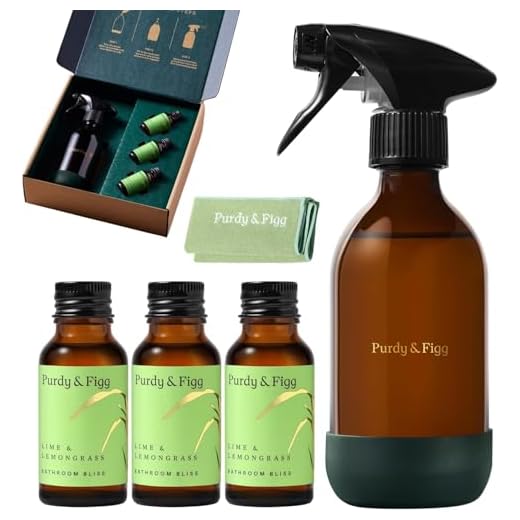

Limescale can be a stubborn problem to tackle, whether it’s in your bathroom fixtures, kitchen appliances, or even in your tea kettle. It is a white, chalky substance that forms from the minerals in your water and can build up over time. Many people have tried various methods to remove limescale, from using commercial cleaning products to natural remedies. However, one unexpected solution that has been gaining popularity is denture tablets.
Denture tablets are typically used to clean and sanitize dentures, but some people have found that they can also be effective in removing limescale. These tablets are made up of various cleaning agents and effervescent bubbles that work together to break down stains and deposits. When placed in water, the tablets dissolve and release these cleaning agents, creating a solution that can help break down limescale and make it easier to remove.
So, how do you use denture tablets to remove limescale? It’s a simple process. First, fill a container or sink with warm water. Then, drop in a denture tablet or two, depending on the severity of the limescale. Let the tablets dissolve completely and mix with the water. Once the solution is ready, you can place the item with limescale into the container and let it soak for a few hours or overnight. After that, you can easily scrub away the limescale using a brush or cloth.
While denture tablets can be effective in removing limescale, it’s important to note that their effectiveness may vary depending on the severity of the limescale and the type of surface it is on. In some cases, you may need to repeat the process or use additional cleaning methods to completely remove the limescale. Additionally, it’s always a good idea to read the instructions on the denture tablet packaging and follow them carefully to ensure safe and effective use.
What is Limescale?
Limescale is a common problem that many people encounter in their homes, especially in areas with hard water. It is a white, chalky deposit that forms on various surfaces, such as sinks, faucets, and kettle elements. Limescale is primarily composed of calcium carbonate, which is a mineral found in the water supply. When hard water is heated or evaporates, it leaves behind calcium carbonate, resulting in limescale buildup.
Hard water contains high levels of minerals, particularly calcium and magnesium. These minerals bond with other substances, such as soap and detergent, creating a sticky residue that is difficult to remove. Over time, this residue accumulates and forms limescale deposits, which can not only make surfaces look unsightly but also affect the performance of appliances.
Limescale can cause a range of issues, including:
- Reduced water flow: Limescale deposits can clog pipes and narrow the flow of water, leading to reduced water pressure.
- Damage to appliances: Limescale can build up in appliances like kettles, washing machines, and dishwashers, causing them to work less efficiently and potentially shortening their lifespan.
- Unpleasant taste: Limescale can alter the taste of water, making it unpleasant to drink or use for cooking.
- Stains and discoloration: Limescale can leave behind stubborn stains and discoloration on surfaces, making them look dirty and unappealing.
Preventing and removing limescale is important for maintaining the cleanliness and functionality of your household items. There are various methods and products available to tackle limescale, including using denture tablets. However, it’s essential to understand the effectiveness and limitations of these methods before relying on them for limescale removal.
Understanding the Common Household Problem
When it comes to maintaining a clean and functional household, there are many common problems that can arise. One such problem is the buildup of limescale, a chalky white substance that accumulates on various surfaces in the home.
Limescale is typically caused by the presence of hard water, which contains high levels of minerals like calcium and magnesium. Over time, these minerals can build up and form a hard, crusty deposit on surfaces such as faucets, showerheads, and kettle bottoms.
Not only does limescale make these surfaces look unsightly, but it can also impede their performance. For example, a faucet clogged with limescale may experience reduced water flow, while a kettle with a thick layer of limescale may take longer to boil water.
Removing limescale can be a challenging task, as it is resistant to many traditional cleaning methods. However, there are a variety of household remedies that can effectively tackle this problem.
The Use of Denture Tablets for Limescale Removal
One popular method for removing limescale is the use of denture tablets. These tablets are typically used to clean and disinfect dentures, but they can also be effective for tackling limescale buildup.
The active ingredients in denture tablets, often including baking soda and citric acid, work to break down the mineral deposits that make up limescale. When dissolved in water, the tablets create a fizzy reaction that helps to loosen and dissolve the buildup.
To use denture tablets for limescale removal, simply dissolve a tablet in a container of warm water. Then, submerge the affected item (such as a faucet aerator or showerhead) in the solution and let it soak for a few hours or overnight. After soaking, scrub the item with a brush to remove any remaining residue.
Other Household Remedies for Limescale Removal
In addition to denture tablets, there are several other household remedies that can be effective for removing limescale:
- Vinegar: Vinegar is an acidic solution that can help dissolve limescale. Mix equal parts vinegar and water and use this solution to soak the affected item or apply it directly to the limescale buildup.
- Lemon juice: Lemon juice contains citric acid, which can break down limescale. Squeeze fresh lemon juice onto the limescale and let it sit for a few minutes before scrubbing it away.
- Baking soda: Baking soda is an abrasive substance that can help scrub away limescale. Make a paste by mixing baking soda with water, and then apply it to the limescale buildup and scrub with a brush.
By understanding the common household problem of limescale and utilizing these effective remedies, you can keep your home surfaces clean and free of unsightly buildup.
Exploring the Product’s Purpose and Uses
Understanding Denture Tablets
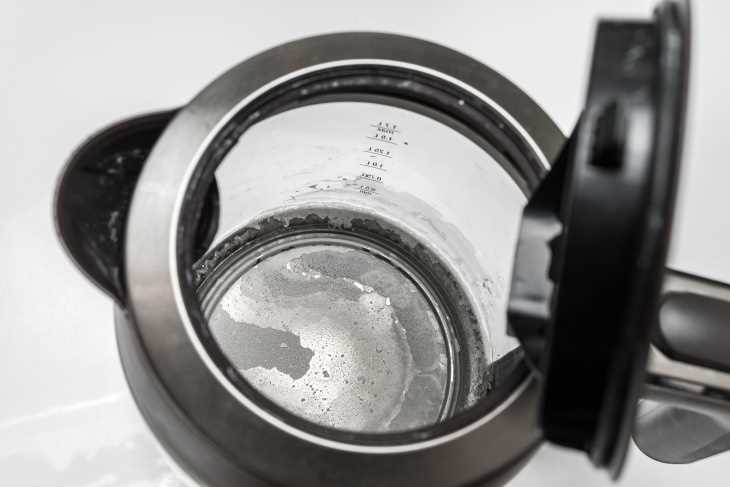
Denture tablets are commonly used for cleaning and sanitizing dentures. They are effervescent tablets that dissolve in water to create a cleaning solution that helps remove stains, odor, and bacteria from dentures.
Denture tablets are typically formulated with various cleaning agents and disinfectants, such as sodium bicarbonate, citric acid, and hydrogen peroxide. These ingredients work together to break down stains, remove limescale buildup, and kill harmful bacteria.
The Purpose of Denture Tablets
The main purpose of denture tablets is to provide an effective and convenient way to clean and maintain dentures. Dentures can accumulate plaque, stains, and other debris over time, leading to bad breath and oral health issues if not properly cleaned.
Denture tablets offer a simple solution to this problem, as they effectively remove bacteria, stains, and limescale buildup, leaving dentures clean, fresh, and odor-free. They can also help restore the natural appearance of dentures, making them look brighter and more appealing.
Common Uses of Denture Tablets
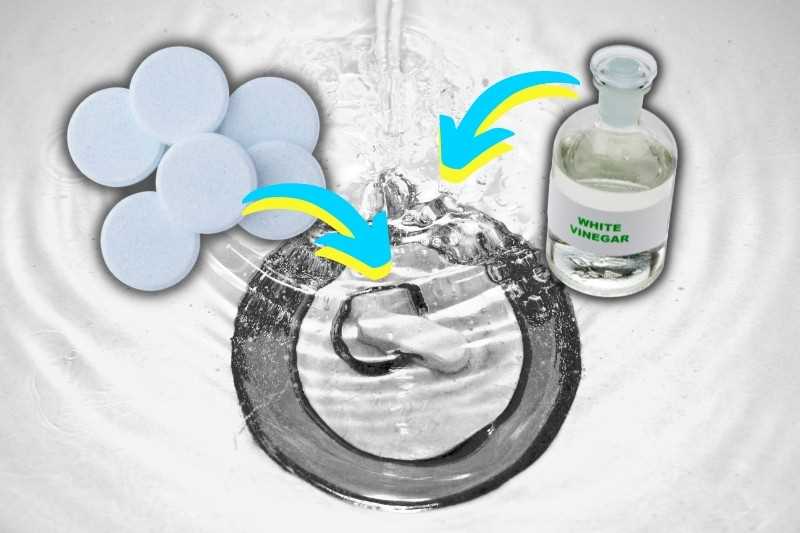
Denture tablets can be used in various situations and for different purposes. Some common uses include:
- Daily Cleaning: Denture tablets can be used for daily cleaning of dentures, helping to remove plaque, stains, and bacteria that can accumulate throughout the day.
- Deep Cleaning: For more thorough cleaning, denture tablets can be used to soak dentures overnight, allowing the cleaning solution to penetrate and remove stubborn stains and limescale buildup.
- Removing Limescale: One of the uses of denture tablets is to remove limescale, a common problem for denture wearers. The effervescent action of the tablets helps break down the limescale, making it easier to remove.
- Deodorizing: Denture tablets can also help eliminate odors that can develop on dentures, leaving them fresh and clean-smelling.
Conclusion
Denture tablets are a versatile and effective product for cleaning and maintaining dentures. They are designed to remove stains, limescale, and bacteria, providing a fresh, clean, and odor-free denture. By incorporating denture tablets into a regular denture cleaning routine, denture wearers can ensure the longevity and hygiene of their dentures.
Can Denture Tablets Remove Limescale?
In our quest to find effective cleaning solutions for various household items, denture tablets have emerged as a popular option. These tablets are primarily designed for denture sanitization and cleaning. However, their effervescent properties have led some to wonder if denture tablets can also remove limescale.
Limescale is a common problem caused by the buildup of minerals, particularly calcium carbonate, on surfaces such as faucets, showerheads, and appliances. It can be frustrating to deal with, as it can cause blockages, reduce water flow, and affect the appearance of surfaces. Many cleaning products are available in the market specifically for limescale removal, but could denture tablets be an effective and affordable alternative?
The Science Behind Denture Tablets
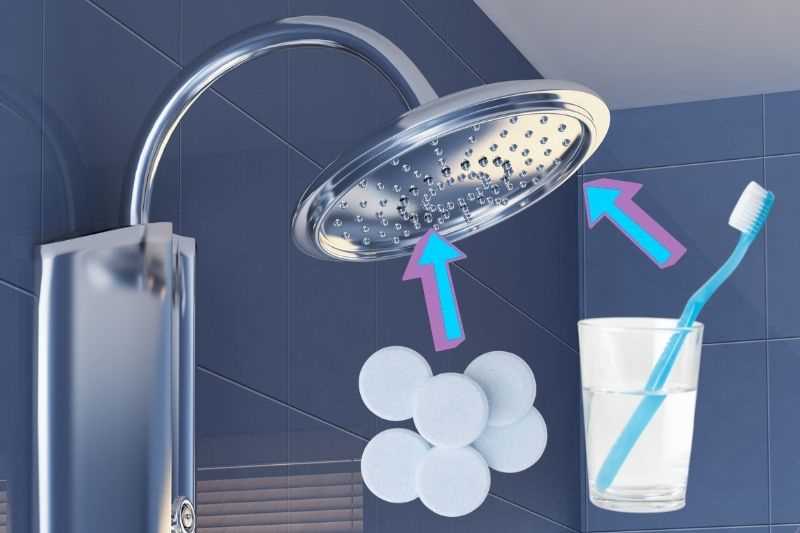
Denture tablets typically contain a combination of ingredients that work together to clean and sanitize dentures. These ingredients often include:
- Sodium bicarbonate (baking soda)
- Citric acid
- Potassium monopersulfate
- Sodium perborate
- Sodium carbonate peroxide
When denture tablets are dissolved in water, the effervescent reaction creates tiny bubbles, which help to dislodge debris and stains from the dentures. The bubbling action is responsible for removing plaque, stains, and odors. But can this same mechanism be effective in removing limescale?
Effectiveness on Limescale
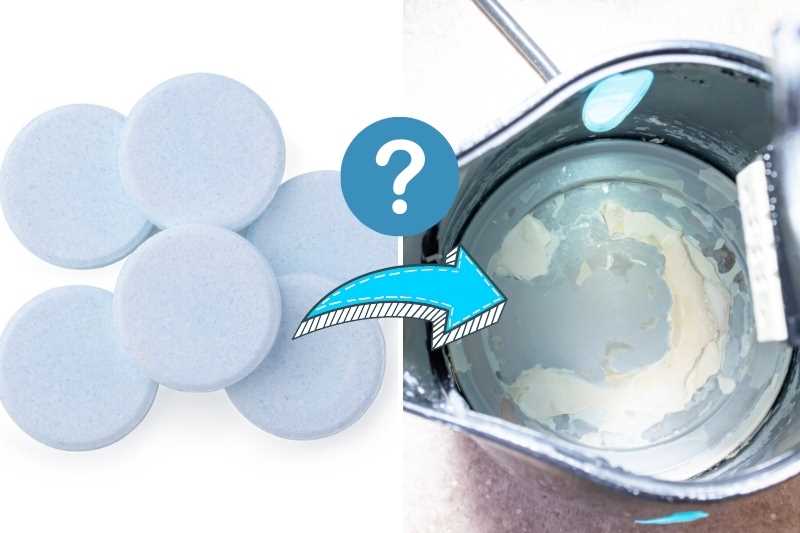
While denture tablets can be effective at removing stains and buildup from dentures, they may not be as effective at removing hardened limescale deposits. Limescale is formed when minerals in water combine and adhere to surfaces over time, creating a hard substance that can be difficult to remove. Denture tablets are primarily designed for cleaning dentures, and the concentration of active ingredients may not be strong enough to tackle stubborn limescale.
For light limescale deposits, denture tablets may have some effect. The effervescent action can help to break down the minerals and loosen the deposits, making them easier to remove. However, for heavy limescale buildup, it is recommended to use dedicated limescale removers that are specifically formulated to dissolve and remove the hardened deposits.
Conclusion
While denture tablets can be a convenient and affordable option for cleaning dentures, they may not be the most effective solution for removing limescale. For light limescale deposits, denture tablets may provide some benefit, but for heavy buildup, it is best to use specialized limescale removers for optimal results.
It is always important to follow the manufacturer’s instructions when using any cleaning product and to test it on a small, inconspicuous area before applying it to larger surfaces. If limescale persists even after trying denture tablets or specialized limescale removers, it may be necessary to seek professional help or consider replacing the affected surfaces.
Examining the Effectiveness for Limescale Removal
When it comes to removing limescale, there are various methods and products available on the market. One popular method that has gained attention is the use of denture tablets. These tablets are typically used for cleaning dentures, but some people claim they are effective for removing limescale as well. In this article, we will examine whether denture tablets are truly effective for limescale removal.
What is Limescale?
Limescale, also known as calcium carbonate, is a hard, white deposit that forms on surfaces that come in contact with hard water. It is commonly found in areas with high mineral content in the water supply.
How Denture Tablets Work
Denture tablets are designed to clean and disinfect dentures by removing stains, plaque, and bacteria. They typically contain ingredients such as sodium bicarbonate, citric acid, and oxygenating agents. When dissolved in water, these tablets create an effervescent solution that helps to break down and lift away debris.
The Science Behind Limescale Removal
While denture tablets can effectively remove stains and bacteria from dentures, their effectiveness for limescale removal is questionable. Limescale is primarily composed of calcium carbonate, which is a different chemical compound than the stains and bacteria that denture tablets are designed to target.
Calcium carbonate is a much harder substance and requires stronger chemicals or mechanical scrubbing to remove effectively. Denture tablets may not contain the necessary ingredients or have the right chemical composition to break down and remove limescale deposits.
The Verdict
Based on the scientific understanding of limescale composition and the ingredients found in denture tablets, it is unlikely that denture tablets are truly effective for limescale removal. While they may help to some extent in breaking down and loosening limescale, additional methods or products specifically designed for limescale removal may be more effective.
If you are dealing with a significant limescale buildup, it is recommended to explore alternative cleaning methods such as using descaling solutions, vinegar, or dedicated limescale removers. Mechanical scrubbing with a brush or scouring pad can also be effective in removing stubborn limescale deposits.
Remember to always follow the instructions provided by the manufacturers of the cleaning products and take necessary safety precautions to protect yourself and the surfaces you are cleaning.
How to Use Denture Tablets for Limescale
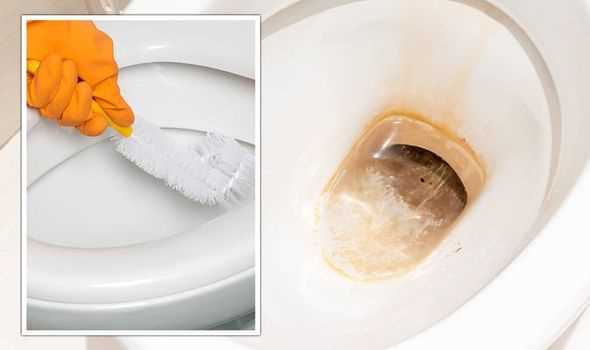
If you’re wondering how to use denture tablets to remove limescale, you’re in the right place! Denture tablets can be a surprisingly effective cleaning solution for limescale build-up in your bathroom or kitchen.
Method 1: Using Denture Tablets for Limescale Removal
- Fill a basin or sink with warm water.
- Drop 1-2 denture tablets into the water and allow them to dissolve.
- Place the limescale-affected item(s) into the water. This could be your kettle, coffee maker, shower head, or any other object with limescale build-up.
- Leave the item(s) to soak for at least 30 minutes. For tougher limescale stains, you may want to leave them overnight.
- After soaking, remove the item(s) from the water and gently scrub away any remaining limescale using a sponge or brush.
- Rinse the item(s) thoroughly with clean water to remove any residue left by the denture tablet solution.
- Enjoy your clean and limescale-free item(s)!
Method 2: Using Denture Tablets for Regular Cleaning
Did you know that denture tablets can be used for regular cleaning tasks as well? Here’s how:
- Dissolve 1 denture tablet in a container filled with warm water.
- Submerge the item(s) you want to clean in the solution.
- Let the item(s) soak for about 15-30 minutes.
- Remove the item(s) from the solution and rinse them thoroughly with clean water.
- Admire your sparkling clean item(s)!
Remember, denture tablets are not only great for cleaning dentures but are also useful for tackling limescale and other stubborn stains. Give them a try and see the impressive results for yourself!
Step-by-Step Guide for Effective Results
1. Gather the necessary materials
Before you begin, make sure you have all the materials you need for the cleaning process. This includes:
- A denture tablet
- A container or glass
- Water
- A soft toothbrush or denture brush
2. Fill the container with water
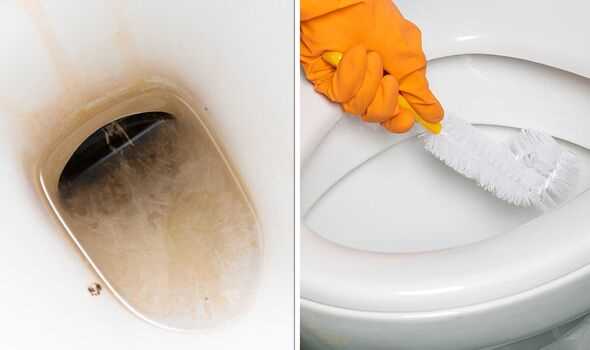
Fill the container or glass with enough water to fully submerge your limescale-stained item. Make sure the water is at a temperature that is safe for the material of your object.
3. Drop in the denture tablet
Drop a denture tablet into the water and let it dissolve completely. Denture tablets contain active ingredients that help break down stains and deposits, including limescale.
4. Submerge the item
Place the limescale-stained item into the container, ensuring it is fully submerged in the water and denture tablet solution. If the item is too large to fully submerge, focus on the areas with the most limescale buildup.
5. Let it soak
Allow the item to soak in the water and denture tablet solution for the recommended amount of time. This is usually specified on the packaging of the denture tablets. The soaking time typically ranges from 15 minutes to overnight.
6. Scrub gently
After the soaking period, remove the item from the solution and gently scrub away any remaining limescale using a soft toothbrush or denture brush. Be careful not to apply too much pressure, as this could damage the surface of the item.
7. Rinse thoroughly
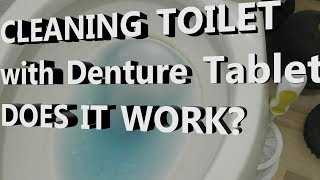
Once you have removed the limescale, rinse the item thoroughly under running water to remove any residue from the denture tablet solution. Ensure that all traces of the cleaning solution are washed away.
8. Dry and enjoy
Finally, dry the item using a clean, dry cloth or allow it to air dry. Once dry, your item should be free of limescale and ready to use or display.
Note: It is important to read and follow the instructions provided by the denture tablet manufacturer, as different brands may have slightly different usage guidelines.
FAQ
Can denture tablets really remove limescale?
Yes, denture tablets can help remove limescale. Denture tablets contain a combination of citric acid and sodium bicarbonate, which are effective at breaking down mineral deposits like limescale.
How do denture tablets remove limescale?
Denture tablets contain citric acid and sodium bicarbonate which react with limescale to dissolve it. The effervescent action of the tablets helps to lift the limescale off the surface and the cleaning agents remove any remaining residue.
Are denture tablets better than other limescale removers?
Denture tablets can be an effective limescale remover, but their efficiency may vary depending on the severity of the limescale buildup. They are generally considered safe to use on various surfaces, but for heavy limescale deposits, it may be more effective to use dedicated limescale removers.
Can denture tablets damage surfaces?
Denture tablets are generally safe to use on surfaces like porcelain, ceramic, and stainless steel. However, it is important to follow the instructions and avoid using the tablets on delicate surfaces or materials that may be sensitive to acid. If in doubt, it’s best to test a small area first.
Are denture tablets cheaper than other limescale removers?
Denture tablets are often more affordable than dedicated limescale removers. They can be a cost-effective option, especially for regular cleaning and maintenance. However, the price may vary depending on the brand and quantity of tablets purchased.
How long should I leave denture tablets on limescale?
The recommended duration for leaving denture tablets on limescale will vary depending on the specific product and the severity of the limescale. In general, it is advisable to follow the instructions provided by the manufacturer. Some tablets may require a few minutes of soaking, while others may need to be left overnight for best results.












